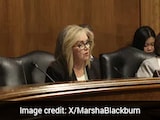- The central government released 26 men detained during Ladakh protests to help ease tensions
- Ladakhi leaders and families welcomed the released detainees with ceremonial scarves
- But activist Sonam Wangchuk remains jailed under the National Security Act in Rajasthan
The government has released 26 men detained during violent protests in Ladakh last week - over demands for statehood and constitutional safeguards - to help settle frayed nerves and demonstrate an intent to resolve this matter peacefully, without further clashes or deaths.
Ladakhi leaders and the families of the 26 men gathered to receive them as they walked out of the Leh District Jail Thursday morning. They were welcomed with a khata, a ceremonial white scarf symbolising honour and respect in the Himalayan territory. Tsering Dorje Lakruk, Co-Chairman of the Leh Apex Body, was also present to honour the 26 men upon their release.
The government's gesture of goodwill followed Mr Lakruk declaring the LAB, which represents the Buddhist majority in the region, will withdraw from talks over the detention of protesters, including environmental activist Sonam Wangchuk, seen as the face of this movement.
Wangchuk was arrested three days after the violence and charged under the stringent National Security Act, which allows the government to hold him, without trial for an initial 12 months.
The 59-year-old is accused of instigating violence, a claim he has denied, and is in a Rajasthan jail. He was present in Leh leading a 15-day hunger strike when the violence broke out. He later told reporters the strike had been called off and he appealed for peace when the clashes began.
The LAB has urged the federal government to rescind Wangchuk's detention order.
That, however, has not happened so far.
But hours after that appeal the government responded, saying it had 'always maintained an open position for dialogue with the Leh Apex Body and Kargil Democratic Alliance at any time'.
The KDA represents the Muslim community in the region.
A pro-statehood movement rumbling and simmering over the past four years erupted on September 24; the proximate cause was the hospitalisation of activists on a hunger strike, and frustration over talks with the government dragging to a fourth round - scheduled for October.
The result was chaos and grief. Four people were killed as protesters clashed with security forces on the streets. A CRPF vehicle was vandalised and the BJP's Leh office burned down.
Dozens, including police personnel, were injured.
In the resulting government crackdown over 50 people were arrested.
A key demand of the LAB and KDA is a judicial probe into the four deaths, whom they claim were killed in firing by CRPF personnel. One of them was Tsewang Tharchin, an Army soldier (posted to the Ladakh Scouts) who fought in the Kargil War against Pakistan in 1999.
Ladakh was made a separate union territory in August 2019, following the abrogation of Article 370 and the bifurcation of the former state of Jammu and Kashmir. Many in Leh, including Sonam Wangchuk, welcomed the move. But, within a year, concerns began to mount over what residents described as a political vacuum under the administration of the Lieutenant Governor.
This gave rise to large-scale protests and hunger strikes and, for the first time, unity between political and religious groups from Buddhist-majority Leh and Muslim-majority Kargil.
Since then there have been successive rounds of talks with the government but these have yielded no breakthrough. In March, Ladakhi representatives met Home Minister Amit Shah.
And after that meeting Ladakhis' discontent increased further after Shah reportedly rejected their core demand. "During the meeting, he told us he had made a mistake by carving out Ladakh as a UT. But he also rejected our demand for statehood..." one leader told NDTV.















